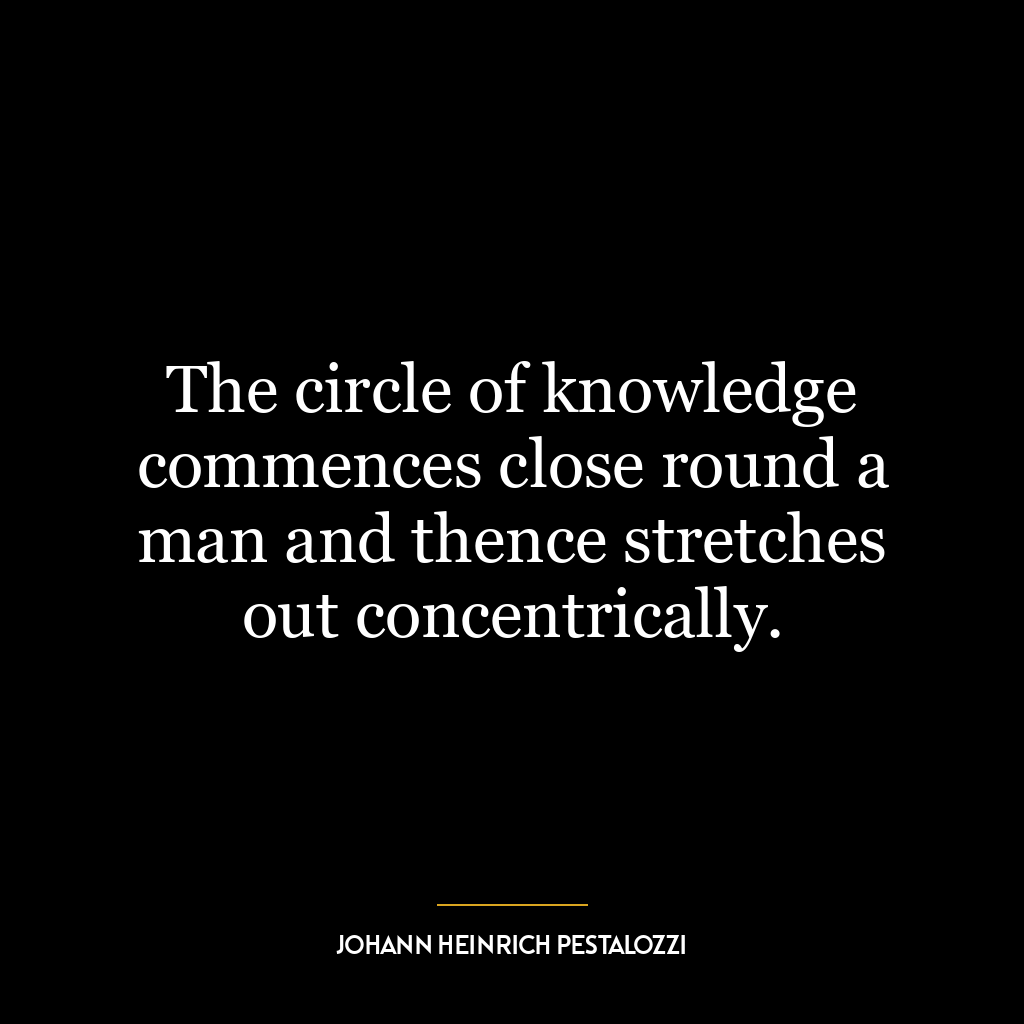Johann Heinrich Pestalozzi Quotes
- Educator
- Switzerland
- 1746
Johann Heinrich Pestalozzi (1746-1827) was a Swiss educational reformer and social theorist. He is best known for his innovative approach to education, which focused on the development of the whole child and emphasized the importance of practical experience. His works include How Gertrude Teaches He…Read More
Johann Heinrich Pestalozzi (1746-1827) was a Swiss educational reformer and social theorist. He is best known for his innovative approach to education, which focused on the development of the whole child and emphasized the importance of practical experience. His works include How Gertrude Teaches Her Children (1782), Leonard and Gertrude (1781), and The School for the People (1799). Pestalozzi’s ideas had a major influence on the development of modern education, and his work is still studied and discussed today.Read Less
Johann Heinrich Pestalozzi (1746-1827) was a Swiss educational reformer and social theorist. He is best known for his innovative approach to education, which focused on the development of the whole child and emphasized the importance of practical experience. His works include How Gertrude Teaches Her Children (1782), Leonard and Gertrude (1781), and The School for the People (1799). Pestalozzi’s ideas had a major influence on the development of modern education, and his work is still studied and discussed today.
Johann Heinrich Pestalozzi Career Highlights
- Establishment of the Neuhof School: In 1774, Pestalozzi established the Neuhof School, a boarding school for poor children in Switzerland. This was his first attempt at implementing his educational theories, which focused on the holistic development of children.
- Development of the “Method of Object Teaching”: Pestalozzi’s most significant contribution to education was the development of the “Method of Object Teaching.” This method emphasized the use of concrete objects and experiences to teach abstract concepts, making learning more engaging and effective.
- Founding of the Yverdon School: In 1805, Pestalozzi founded the Yverdon School, which became a center for educational reform and attracted students and educators from all over Europe. The school was known for its innovative teaching methods and its emphasis on practical learning.
- Publication of “How Gertrude Teaches Her Children”: In 1801, Pestalozzi published his most famous work, “How Gertrude Teaches Her Children.” This book outlined his educational philosophy and methods, which had a significant influence on the development of modern education.
- Political Activism: Pestalozzi was also actively involved in political activism, advocating for social and educational reforms. He believed that education was the key to social progress and worked towards making education accessible to all, regardless of their social status.
Key Contributions by Johann Heinrich Pestalozzi
- Child-Centered Education: Pestalozzi’s educational philosophy was centered around the idea of “learning by doing” and focused on the individual needs and abilities of each child. He believed that education should be tailored to the child’s interests and abilities, rather than following a standardized curriculum.
- Emphasis on Moral and Social Development: Pestalozzi believed that education should not only focus on academic subjects but also on the moral and social development of children. He emphasized the importance of character-building and instilling values such as compassion, empathy, and social responsibility in students.
- Influence on Modern Education: Pestalozzi’s ideas and methods had a significant influence on the development of modern education. His emphasis on hands-on learning, child-centered approach, and moral and social development are still relevant in today’s education systems.
What Sets Johann Heinrich Pestalozzi Apart
Pestalozzi’s approach to education was revolutionary for his time. He challenged the traditional methods of rote learning and strict discipline and instead focused on creating a nurturing and stimulating environment for children to learn and grow. His emphasis on the holistic development of children and his belief in the power of education to bring about social change set him apart from his contemporaries.
Takeaways
- Child-Centered Education: Pestalozzi’s emphasis on child-centered education is still relevant today. His methods of using hands-on learning and tailoring education to the individual needs of each child have been adopted by many modern educators.
- Importance of Moral and Social Development: Pestalozzi’s belief in the importance of moral and social development in education is a valuable lesson for educators. He recognized that education is not just about academic knowledge but also about shaping individuals into responsible and compassionate members of society.
- Education as a Tool for Social Change: Pestalozzi’s activism and belief in the power of education to bring about social change is a reminder that education is not just about individual growth but also about creating a better society.
In conclusion, Johann Heinrich Pestalozzi’s career was marked by numerous highlights and contributions that have had a lasting impact on the field of education. His child-centered approach, emphasis on moral and social development, and belief in the power of education to bring about social change make him a pioneer in modern education. His ideas and methods continue to influence educators and shape the way we think about education today.













